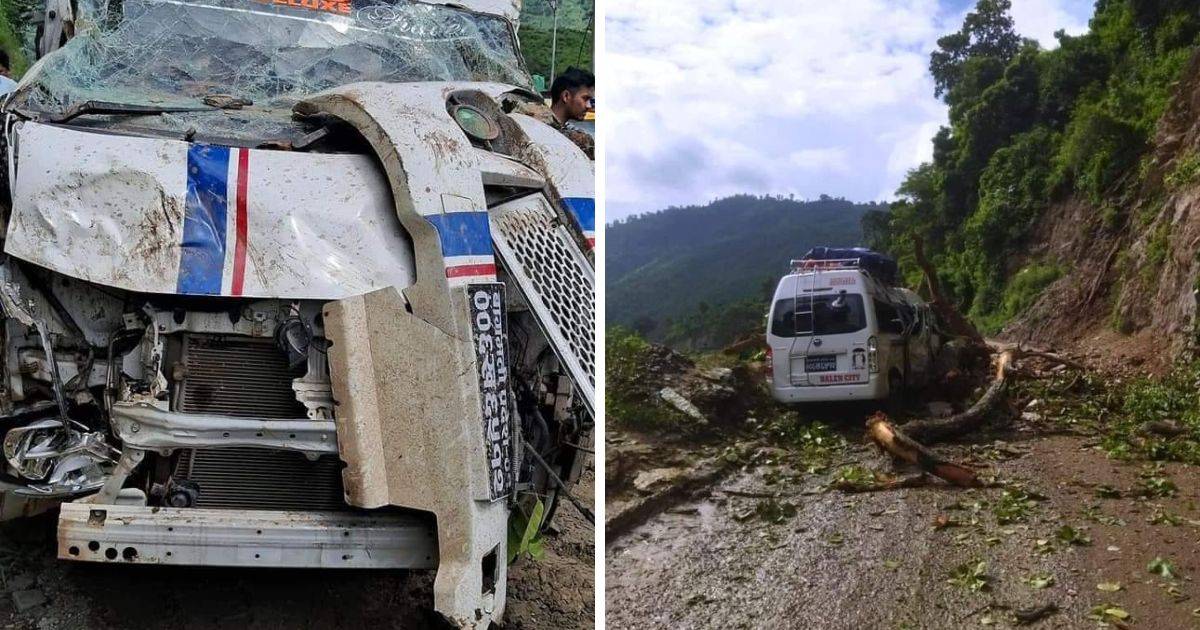Month-long festival in Swoyambhu starting tomorrow
A month-long festival will be starting in Swoyambhu tomorrow. It is said all the preparations for the festival are complete.
Swoyambhu Management and Conservation Mahasamiti expects a higher turnout of devotees this time, following the recent reconstruction of the monuments at the historic site.
Mahasamiti General Secretary Ashok Buddhacharya said shops that were being operated in the makeshift tents have been removed for the convenience of visitors. The Committee hopes that around 500, 000 people from home and abroad will observe the event.
Imports of ATF, LPG via Birgunj plummet
Imports of cooking gas (liquefied petroleum gas) and avian turbine fuel (ATF) via the Birgunj point decreased last fiscal year compared to the previous fiscal year. Data shows that the import of cooking gas decreased by four percent while the import of jet fuel witnessed a significant fall of 71 percent.
According to Birgunj Customs Office's Information Officer Raghulal Karna, during the fiscal year 2079-80 BS (2022-23), a total of 290,287 metric tons of cooking gas amounting to Rs 33.13 billion was imported while it was 267,048 metric tons worth Rs 30 billion last fiscal year.
The imports went down by 11,238 metric tons.
Similarly, the data indicates that 597,144 kiloliters (KL) of jet fuel worth Rs 17.31 billion was imported during the fiscal year 2078-79 BS (2021-22) via the point against 173,484 KL last fiscal year. However, the value of the fuel imported last fiscal year was Rs 18.21 billion due to an increased price of ATF.
Despite the reduction in the imports of cooking gas and aviation turbine fuel (ATF), the imports of diesel and petrol increased. Diesel imports rose by four percent, while petrol imports soared by two percent compared to the previous year.
For the fiscal year 2079/80 (2022-23), diesel imports amounted to Rs 113.58 billion for 1,040,506 KL, and petrol imports totaled Rs 38.24 billion for 389,711 KL. In the previous fiscal year, diesel imports were valued at Rs 109.29 billion for 1,083,520 KL, and petrol imports at Rs 39.02 billion for 394,723 KL.
It is noted that 70 percent of Nepal's fuel requirements are addressed through supplies via Birgunj.
Heavy rain likely in some places of five provinces
Light rainfall is taking place at one or two places in Gandaki, Karnali and Sudurpaschim Provinces.
This is due to the influence of monsoon winds still active in the country, according to the Weather Forecasting Division of the Department of Hydrology and Meteorology.
The Division said that the weather will be partly to generally cloudy across the country today with a possibility of light to moderate rain coupled with thunder and lightning at some places.
It is predicted that one or two places in Bagmati, Gandaki, Lumbini, Karnali and Sudurpaschim Provinces could receive heavy rainfall this afternoon.
Later tonight, the weather will be partly cloudy across the country with chances of light to moderate rain with thunder and lightning in some places. There are chances of heavy rainfall in one or two places in Koshi and Lumbini Provinces.
Public holiday in Kathmandu Valley on Sunday
The government has announced a public holiday in the three districts of Kathmandu Valley on August 4, Sunday, on the occasion of the Rato Machindranath Jatra, the day on which the legendary bhoto (vest) of the Rato Matsyendranath deity is exhibited for public viewing.
A notice issued today by Spokesperson of the Home Ministry, Narayan Prasad Bhattarai, mentioned that the public holiday has been announced in Kathmandu, Lalitpur and Bhaktapur districts on this day.
The government gives a public holiday in Kathmandu Valley every year on the occasion of Bhotojatra.



















